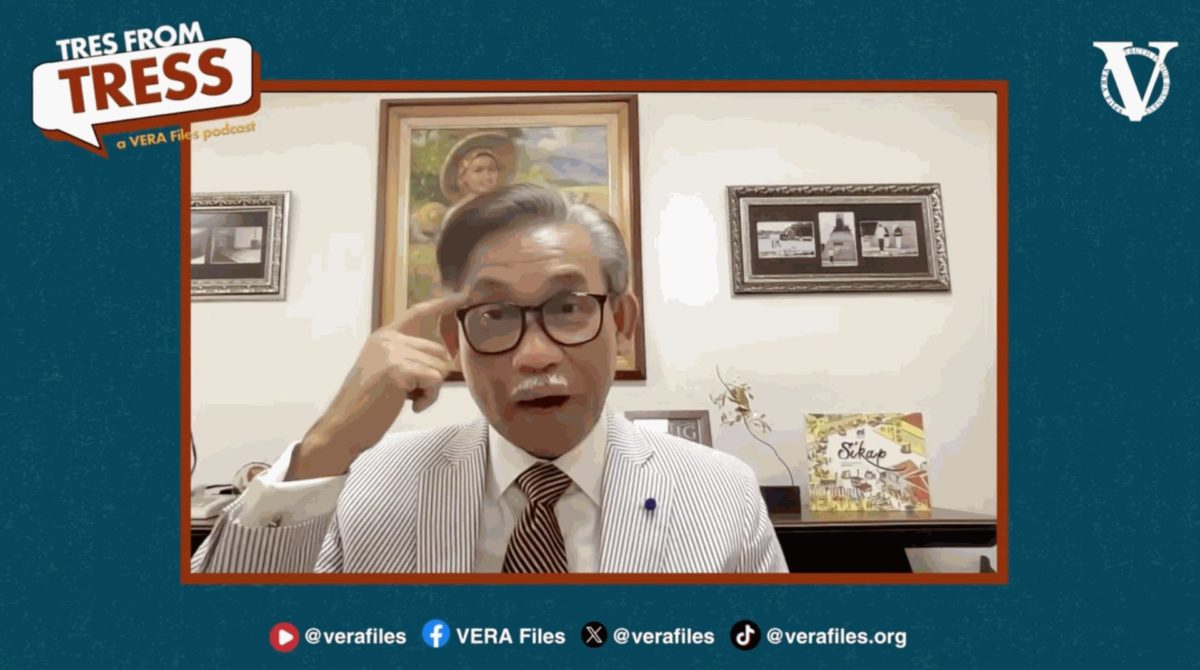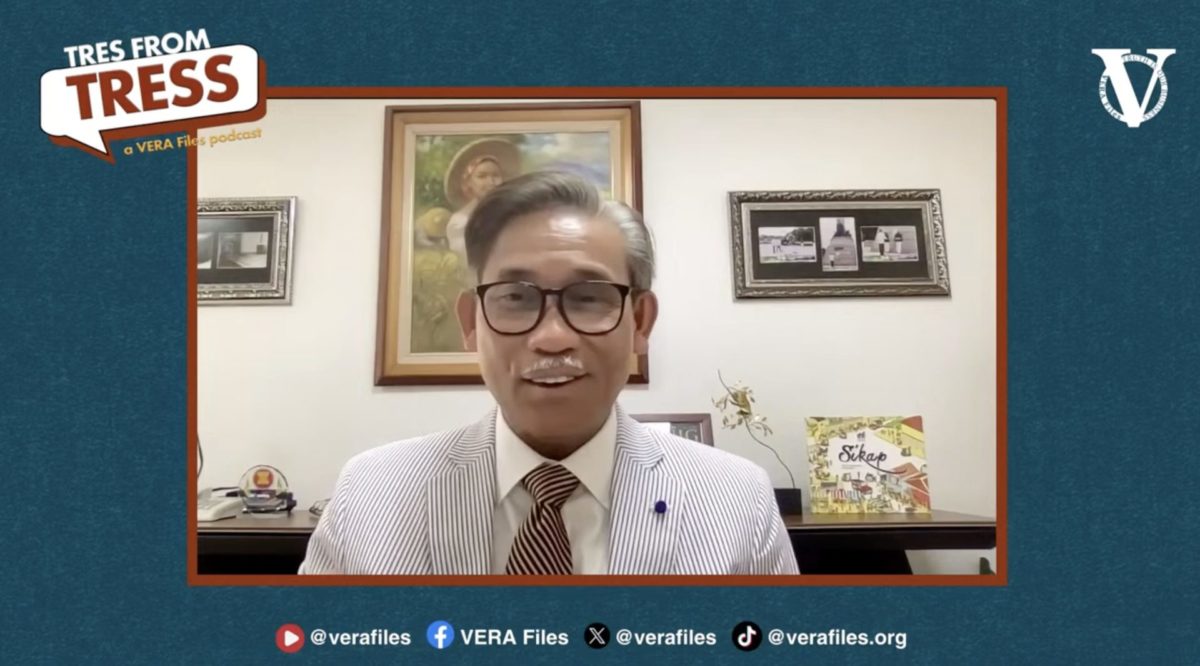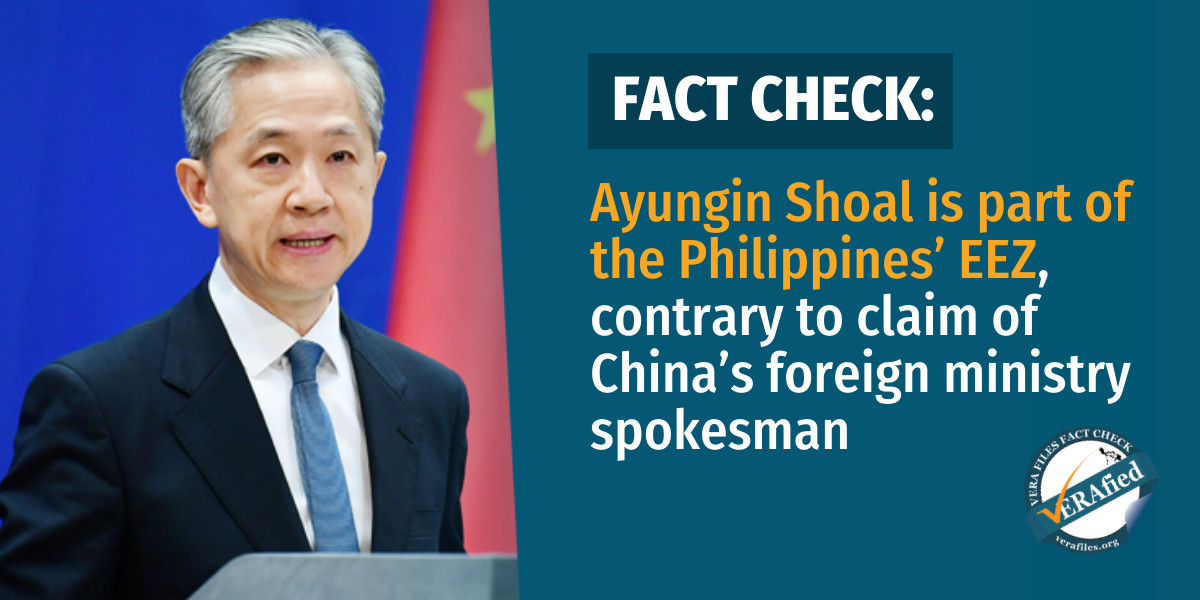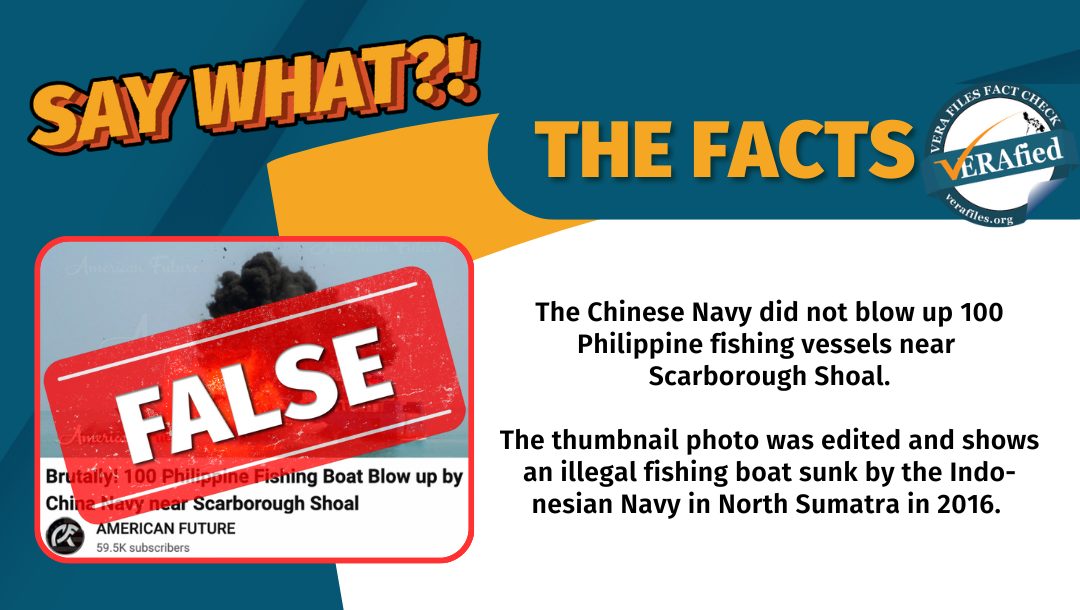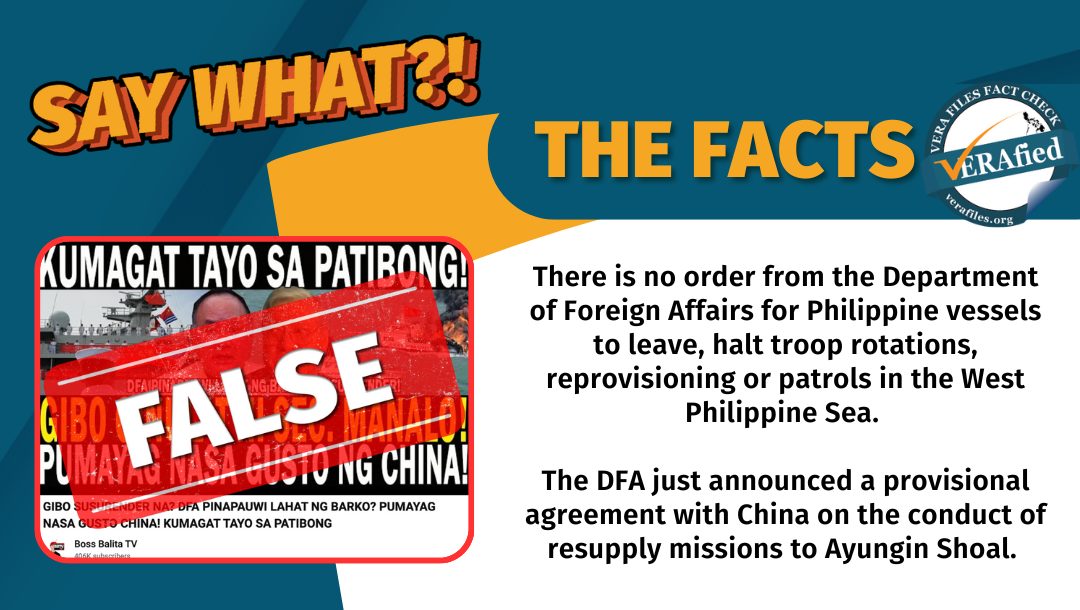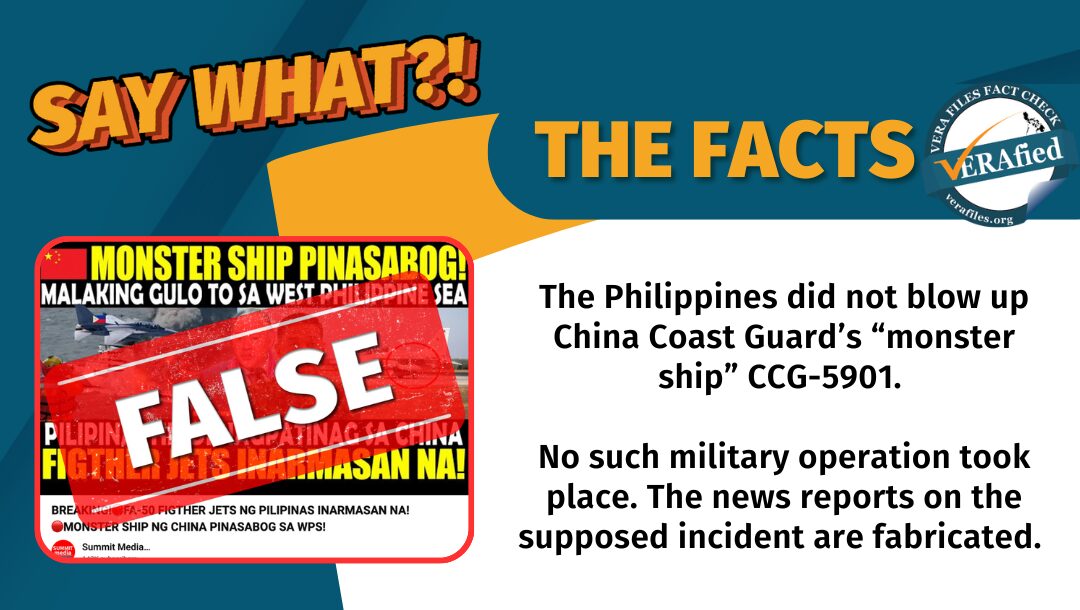The Philippines’ historic win in the South China Sea arbitration at The Hague in July 2016 was a dispute on mindsets, according to seasoned diplomat Henry Bensurto Jr.
“Aggression is also a mindset,” Bensurto told Tress Martelino-Reyes in the July 10 episode of VERA Files’ Tres from Tress podcast when asked about his expectations from China after the Philippines won its case eight years ago.
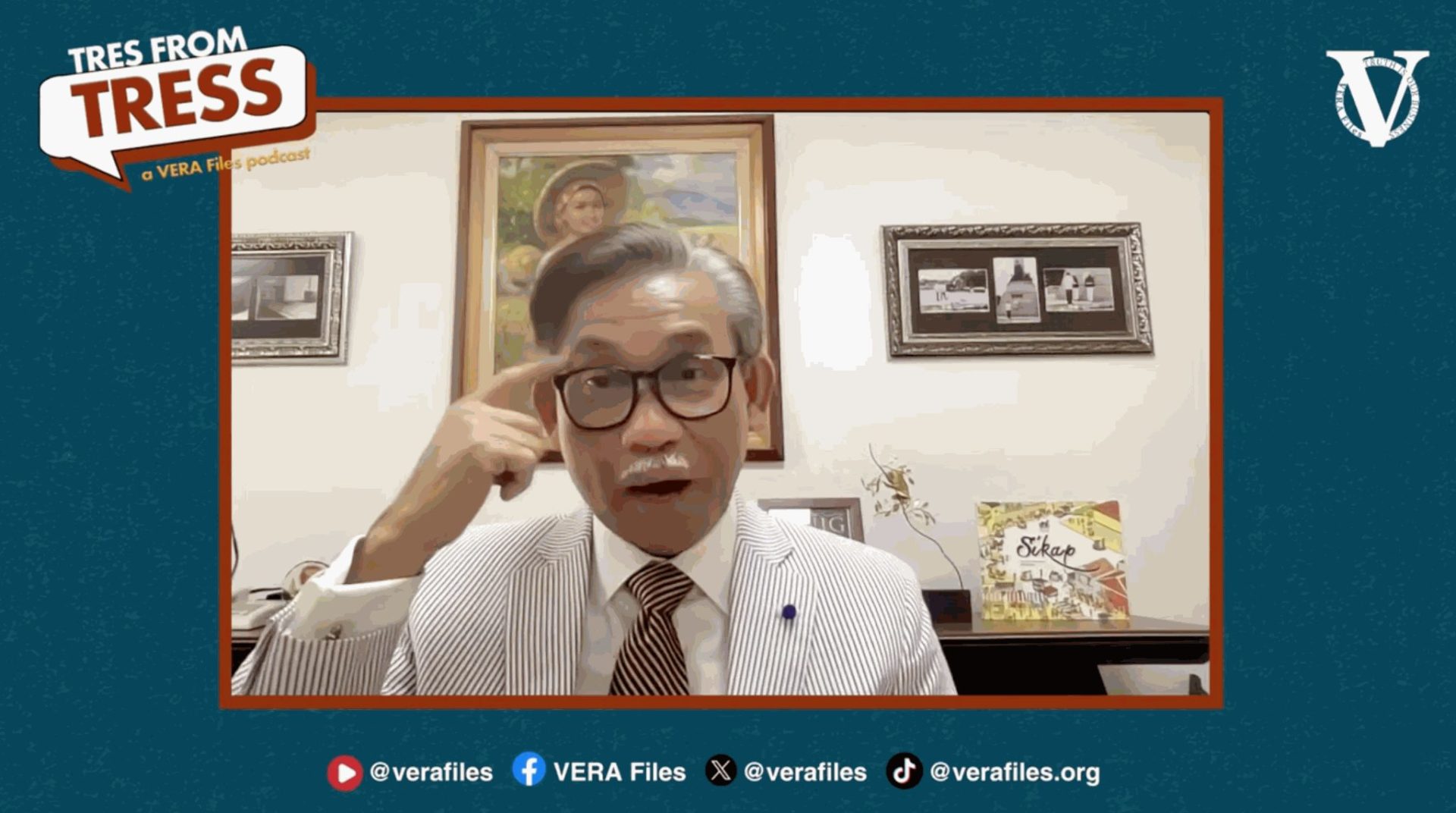
“They [China] know they are not on the right side, legally speaking, but they are not changing because they know they can change us,” he explained.
Bensurto, who now serves as Philippine Ambassador to Türkiye, is the “silent hero” behind the Philippines’ legal case against China filed in January 2013.
China, however, has repeatedly ignored the arbitral ruling.
Nearly the entire West Philippine Sea, approximately 550,000 square kilometers of the country’s Exclusive Economic Zone (EEZ) and continental shelf, was under dispute, according to Bensurto.
The tribunal nullified China’s sweeping nine-dash-line claim, noting that “there was no evidence” that it had historic rights over the waters or resources within these sea areas.
As a result, he said the Philippines “regained almost 540,000 of our EEZ and another 550,000 of our continental shelf.”
This gives the country exclusive rights to explore and exploit the natural resources within the EEZ, including Recto Bank (Reed Bank), Ayungin Shoal (Second Thomas Shoal) and Panganiban Reef (Mischief Reef).
“Our fishermen should be able to fish because that is our EEZ and what China is interfering with is our sovereign rights,” Bensurto stressed.
On June 17, the Armed Forces of the Philippines reported that Chinese Coast Guard officers used tear gas and bladed weapons to damage the Philippine navy’s rigid hull inflatable boats in Ayungin Shoal.
Following the incident, Foreign Affairs Undersecretary Theresa Lazaro met with Vice Foreign Minister Chen Xiaodong at the China-Philippines Bilateral Consultation Meeting where they had a “candid and constructive exchange” on handling the situation in the West Philippine Sea.
“China reiterated its sovereignty over Nansha Qundao including Ren’ai Jiao and the adjacent waters, and its sovereign rights and jurisdiction over the relevant waters,” a July 2 press statement from the Chinese Ministry of Foreign Affairs read.
‘A long haul project’
For Bensurto, the challenge for the Philippines today is how to implement this legally binding decision, which would require character and patience.
“Ang problem if you are not patient, ‘pag hindi mo kaagad nakuha ngayon, ‘Ay mali ‘yung strategy ko.’ I have to rethink this now, and then ibigay na lang,” he said.
Former president Rodrigo Duterte had described the arbitral win as just “a piece of paper,” flip-flopping from invoking to ignoring it for “economic” agreements with China.
President Ferdinand Marcos Jr., on the other hand, vowed in his inaugural State of the Nation address that he will not abandon “even one square inch” of Philippine territory to any foreign power.
While Bensurto is not part of any planning committee on the West Philippine Sea, he said that any strategy to resolve these issues must be institutionalized and “transcend” political administrations.
The biggest impact of the ruling, he reminded, is that “we were able to prove [China] wrong” at a sound and legal tribunal.
“In terms of mindset, we are now confident. We come to any negotiating table with that clarity,” he stressed.
